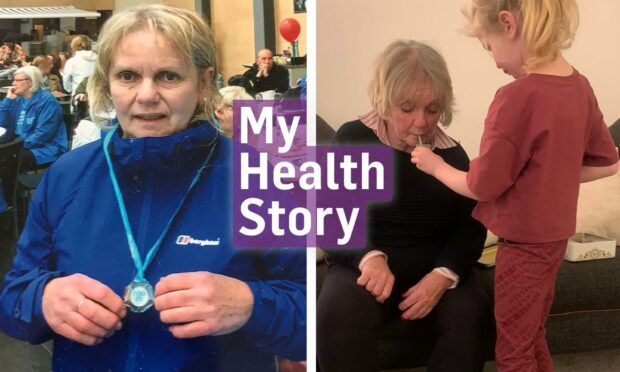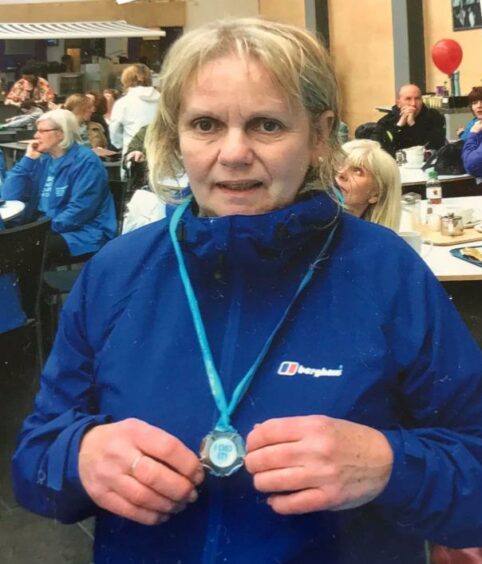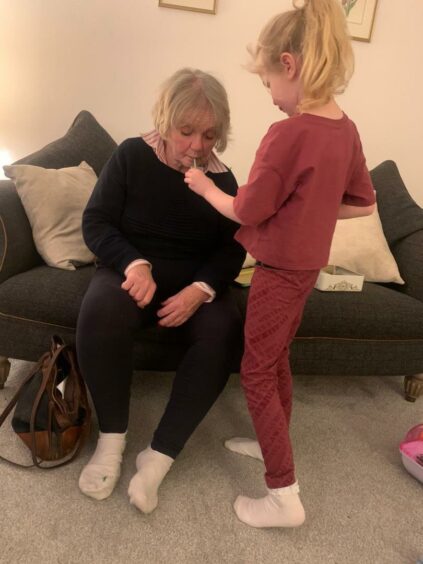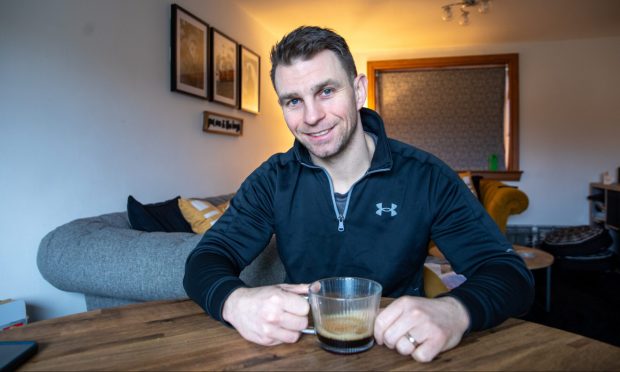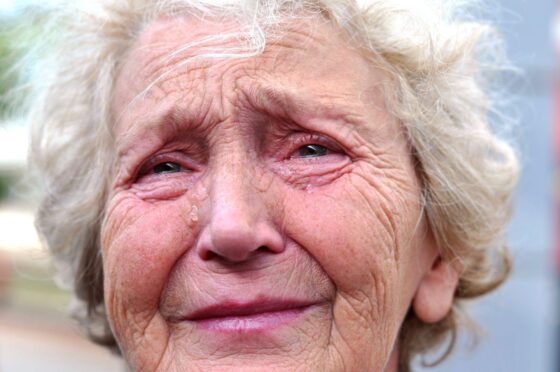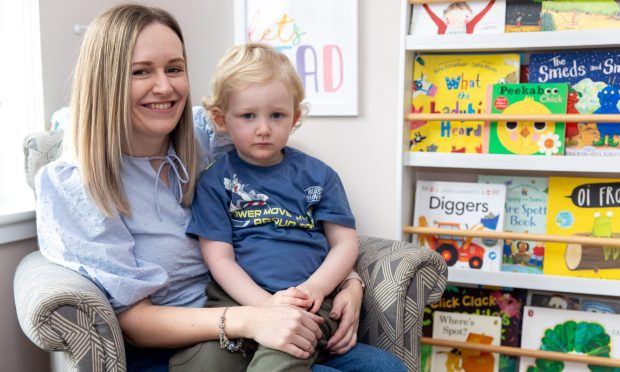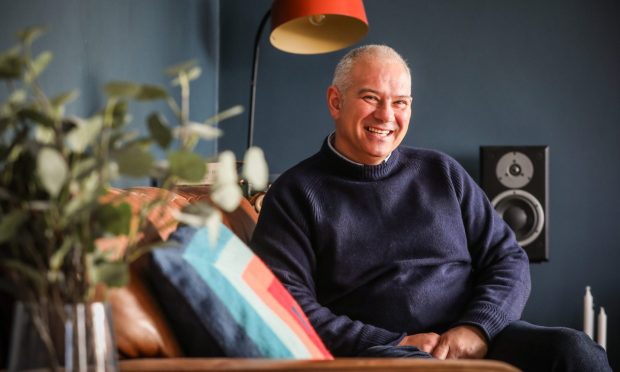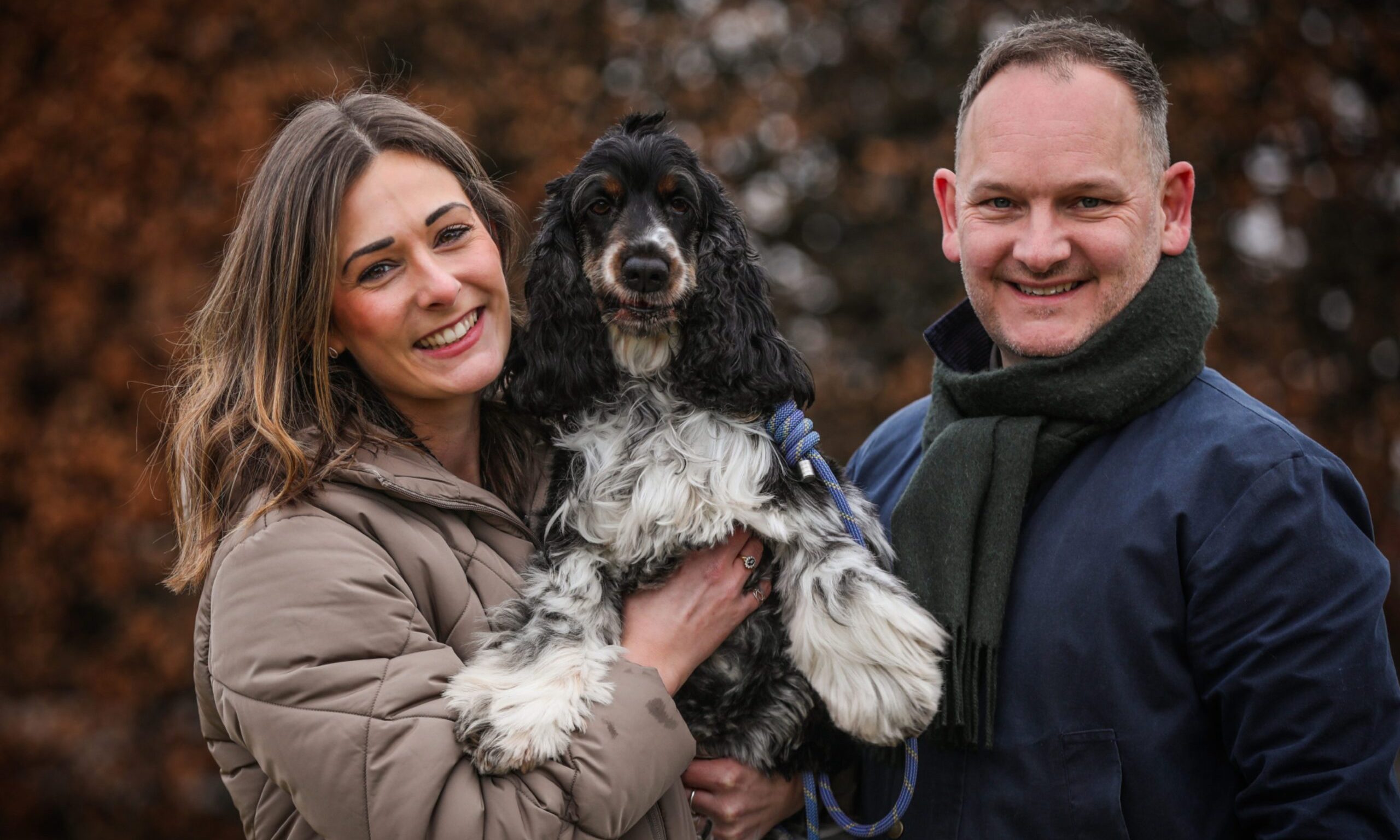Doreen Brown was diagnosed with Parkinson’s at the age of just 50.
It was a difficult time, with her two sons completing their higher and university exams and Doreen wanting to keep life as normal as possible for them.
Since then, the Perth local has coped with the condition by living through the motto: “Parkinson’s lives with me; I don’t live with Parkinson’s.”
Here Doreen tells us:
- The sign she noticed that led to her diagnosis
- How her little granddaughter helps when ‘body freezing’ symptoms happen
- Where she finds local support and friendship
Dealing with diagnosis
Parkinson’s is a progressive neurological condition which affects the brain and gets worse over time.
It is caused by a loss of nerve cells in the brain. This leads to a reduction in dopamine, which plays a vital role in regulating body movement.
Experts don’t know what causes the loss of nerve cells and there is currently no cure for the condition. However, it can be managed through therapies and medication.
Doreen explains: “I first thought something was wrong when I noticed a tremor in my right hand.
“When I went to my GP, I was told it could have been a brain tumour.
“That week I was taken up to PRI and had a scan. I was told actually it wasn’t a brain tumour. After a few more tests, they told me I had Parkinson’s.
“I dealt with it pretty well, I think. I just thought, ‘why not me?’ There are a lot of people who have it far worse off than I do and have the illness worse than me.”
‘I have good days and bad days’
Doreen’s resilience has seen her through the highs and lows of the condition, of which there are equal amounts.
She continues: “I have good days and bad days. On a good day I love going out for long walks, I can go for up to five miles. I also enjoy shopping.
“But on bad days, I can’t get out of my bed. Every day is different.
“I can never tell whether it will be a good or bad day the next day. I can usually only tell when I wake up in the morning.
“For example, yesterday was a bad day and I could barely walk. I pushed myself around the flat in my wheelchair.
“You just have to rest and wait until you feel better.”
Family support
The fluctuating nature of Parkinson’s can make the condition unpredictable, but with the help of friends and family, Doreen is well supported through the hard times and the good.
Doreen, now 64, says: “I have sleepless nights, which is a common side effect – I’m often awake late at night or early in the morning.
“I still get tremor and my medication can cause hallucinations.
“Freezing is another common symptom and lately my whole body and mouth will freeze. That can last for up to four hours.
“You can’t do anything about it. Your body is like a statue. The first time it happened was scary, I didn’t know what was happening. But I’m more used to them now.”
Early signs of Parkinson’s
There are some unusual signs of the condition that are worth getting checked out:
- Handwriting becoming smaller
- Loss of smell
- Trouble sleeping, moving or walking
- Constipation
- Stooping or hunching over
Freezing typically happens when someone is due for their next dose of medication – something Doreen gets a little help with.
“My sons Iain, 35, and Luke, 31, are very good to me and accept me as I am. We’ve never made any fuss about the condition. If I need any help I just phone and my son comes round to help.
“My sister, Anne, and daughter-in-law, Emma, are also a great help, too. I have very good friends and my Letham St Marks Church family I can rely on.
“My six-year-old granddaughter, Olivia, knows when granny freezes, she gets my tablets and gives them to me in water through a straw.
“I’m very proud of her for knowing to do that at six years old.”
‘Try not to let it beat you’
Thankfully, with advances in treatment, most people with Parkinson’s disease now have a normal or near-normal life expectancy.
And Doreen has some advice on what to do and where to go if you’ve recently been diagnosed, or are worries about symptoms.
“I got involved with Parkinson’s UK early on in my journey. The Perth group runs exercise classes, which can be very beneficial.
“I have good friends I’ve made through the groups. Listening to other people’s experiences is the best thing. You learn from that.
“It affects everybody differently. Right from the start I told people I had it.
“The more you speak about it, it doesn’t get easier, but it helps. So does listening to other people’s stories.
“If you’ve been recently diagnosed, reach out for support and try not to let it beat you.
“Make the most of every day.”
Parkinson’s UK also runs support groups in Dundee and Angus, and Fife.
- We’d love to hear about your health journey – whether that’s wellbeing advice, insight into the challenges of living with a long-term condition or an achievement you’re celebrating. Contact us healthandwellbeing@thecourier.co.uk
